Professor Scott Huettel – Behavioral Economics: When Psychology and Economics Collide
Original price was: $215.00.$54.00Current price is: $54.00.
In StockDigital Download: You will receive a download link via your order email
Behavioral economics is the scientific study of decision making, and of the related topics of valuation, exchange, and interpersonal interactions.
Description
Accelerate your learning with the Professor Scott Huettel – Behavioral Economics: When Psychology and Economics Collide course, priced at just Original price was: $215.00.$54.00Current price is: $54.00. on ESYSGB.com! Explore our extensive catalog of over 60,000 downloadable digital courses across Hypnosis and NLP. Experience flexible, self-paced learning from experts and save over 80%. Empower your future today!
Professor Scott Huettel – Behavioral Economics: When Psychology and Economics Collide
Course Overview
Behavioral economics is the scientific study of decision making, and of the related topics of valuation, exchange, and interpersonal interactions. Drawing on methods from psychology, sociology, neurology, and economics, this remarkable discipline illuminates one of the most deeply fundamental activities of human existence: the decision process.
From the moment we wake in the morning, we are confronted with decisions—from what to buy at the supermarket or how to spend the weekend to which career path to pursue, which car to buy, or how to invest our money. Most of the time we make good decisions. But some of the time we don’t. Whether our decisions are successful or less than optimal influences how our lives unfold.
Paradoxically, although we are constantly making decisions, we rarely reflect on the actual process of decision making itself. Making decisions can seem largely intuitive—and intuitions don’t always lead to happy outcomes. But what if you could be fully aware of the process? What might life be like if you could put your hands on the gears of decision making—the specific patterns of perception and cognition that shape your choices—and turn the process to your advantage?
Behavioral economics offers just that possibility. With an incisive focus on human behavior, behavioral economics uncovers what is usually hidden from view in our decision-making process, exploring the key motivators for our decisions, such as probability, risk, reward, and the passage of time. In doing so, it sheds fascinating light on our psychology and on how our brains process information and shape our perceptions as we make decisions.
Most important, by applying its unique approach to many kinds of real-life choices, behavioral economics offers powerful, practical tools for making better and more satisfying decisions.
As a case in point, behavioral economics identifies many human biases or behavioral tendencies that influence our decisions, sometimes outside of our awareness. Behavioral economists show, for example, that our brains predispose us to see things that are familiar as being better or more valuable—making name-brand merchandise or stocks of familiar companies seem desirable. This innate human tendency can lead to bad economic decisions.
The good news, as behavioral economics clearly shows, is that our customary processes and patterns of decision making are not inevitable. By becoming aware of them and watching how they operate in our daily actions, we can open new possibilities for our own behavior and for decision making that can meaningfully improve our quality of life.
In Behavioral Economics: When Psychology and Economics Collide, award-winning Professor Scott Huettel of Duke University leads you in a penetrating look at the processes of decision making that are an integral part of human life. In 24 revealing lectures, you’ll study how behavioral economists look at decision making and explore a set of core principles that offer profound insight into how we gather information and integrate multiple factors to reach decisions. Using real-life examples and case studies, each topic builds to concrete recommendations so that you can understand the patterns of decision making, the purposes they serve, and how to use your knowledge to make more effective and beneficial decisions.
Uncover the Hidden Structures in Decision Making
Professor Huettel brings focus to intriguing and seemingly paradoxical questions regarding human behavior:
- Why does voluntary blood donation decline steeply when people are paid for it?
- When faced with the same medical condition, why do doctors choose objectively better treatment for their patients than they do for themselves?
- Why do employees often fail to enroll in beneficial retirement plans, including plans requiring no financial contribution on their part?
All of these may seem counterintuitive, yet they have a deep structure that we can understand when we apply the tools of behavioral economics. In grasping the underlying factors in decision making, you’ll explore key topics such as these:
- Simple rules: “heuristics”: Study the common internal guidelines people use to streamline decision making, or “heuristics”; observe four of the most prevalent ones, using real-life examples; and identify where heuristics are helpful and where they fail.
- Decisions regarding probability: Learn how human beings convert objective information about probability into a subjective sense of what may happen—an approach filled with error—and grasp two methods for improving probability-based decisions.
- Time-related decisions: Consider why decisions involving time are so challenging; study how time influences the subjective value of money; and learn key strategies for making better time-related decisions.
- Dealing with risk: Examine the element of risk tolerance in decision making; investigate the dynamics of perceived benefits versus perceived risks in decision problems; and study principles for successfully managing risk.
- High stakes: medical decisions: Uncover three core factors that influence how we make medical decisions, and learn how to apply the principles of behavioral economics to improve choices in this area.
- Group decision making: Explore how the diversity of groups benefits decision making, and investigate the principles that lead to good group decisions and how to use those principles in a range of practical contexts.
Behavioral Biases: Turning Limitations into Strengths
As a central element of these lectures, Professor Huettel highlights cognitive patterns that influence our behavior, pushing us toward safety, temptation, or immediate rewards. Among these is what behavioral economists call confirmation bias—the tendency, in decision making, to intuitively seek evidence that confirms our existing beliefs, or to reinterpret evidence that argues against existing beliefs. Using clear-cut examples, you’ll learn how you can counteract or minimize this bias, leading to better-informed and wiser choices.
The course concludes with an in-depth look at two highly effective approaches to shaping decisions. “Precommitment” to a course of action involves making a binding decision in the present for benefits that will occur in the future. “Reframing” strategies alter how the facts of a decision are evaluated against some reference point, allowing critical new insights to appear. You’ll explore the powerful effects of precommitment and reframing in examples ranging from economic transactions and consumer choices to decisions regarding investment and retirement.
Practical Leverage for Empowering Choices
In Behavioral Economics: When Psychology and Economics Collide, you’ll gain a much deeper awareness of how you make decisions, and what steps you can take to make better ones. Professor Huettel illustrates each concept with meaningful stories, analogies, and case studies, relating the material directly to the decisions all of us make as a central part of living. This unique inquiry offers you important knowledge and insights for one of life’s most essential skills.
Get download Professor Scott Huettel – Behavioral Economics: When Psychology and Economics Collide at Forimc.com right now!
Delivery Method
– After your purchase, you’ll see a View your orders link which goes to the Downloads page. Here, you can download all the files associated with your order.
– Downloads are available once your payment is confirmed, we’ll also send you a download notification email separate from any transaction notification emails you receive from esygb.com.
– Since it is a digital copy, our suggestion is to download and save it to your hard drive. In case the link is broken for any reason, please contact us and we will resend the new download link.
– If you cannot find the download link, please don’t worry about that. We will update and notify you as soon as possible at 8:00 AM – 8:00 PM (UTC+8).
Thank You For Shopping With Us!
Be the first to review “Professor Scott Huettel – Behavioral Economics: When Psychology and Economics Collide” Cancel reply
Build a robust future with the Professor Scott Huettel – Behavioral Economics: When Psychology and Economics Collide course at ESYSGB.com! Gain lifetime access to high-impact digital content, meticulously designed to boost your career and personal growth.
- Lifetime Access: Permanent and unlimited access to your purchased courses.
- Exceptional Savings: Enjoy discounts of up to 80% off original prices.
- Secure Payments: Your transactions are fully protected and safe.
- Practical Knowledge: Acquire actionable skills for immediate application.
- Instant Availability: Start learning right after completing your purchase.
- Cross-Device Access: Study seamlessly on any desktop, tablet, or mobile device.
Unlock your potential with ESYSGB.com!


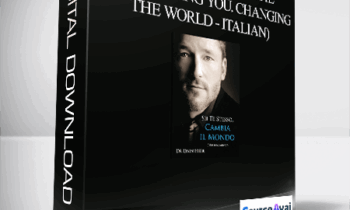



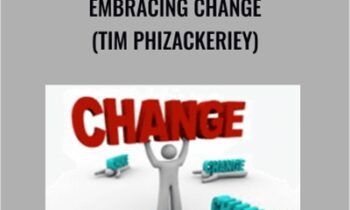






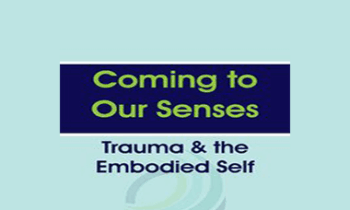






![Professor Scott Huettel – Behavioral Economics: When Psychology and Economics Collide - eSys[GroupBuy] Professor Scott Huettel – Behavioral Economics: When Psychology and Economics Collide](https://esysgb.com/wp-content/uploads/2024/01/Professor-Scott-Huettel-Behavioral-Economics-When-Psychology-and-Economics-Collide-250x343-1.png)
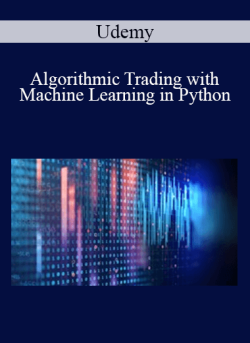
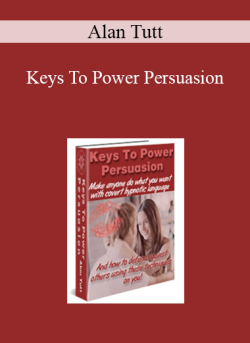
![Rick Collingwood - Ultimate Fitness - eSys[GroupBuy] Rick Collingwood - Ultimate Fitness](https://esysgb.com/wp-content/uploads/2023/04/17653_new.png)
![Kenrick Cleveland - Dark Side of M.O.M Coaching Calls - eSys[GroupBuy] Kenrick Cleveland - Dark Side of M.O.M Coaching Calls](https://esysgb.com/wp-content/uploads/2023/04/Kenrick-Cleveland-Dark-Side-of-M.O.M-Coaching-Calls.png)
![Alter Ego Effect - Todd Herman - eSys[GroupBuy] Alter Ego Effect - Todd Herman](https://esysgb.com/wp-content/uploads/2023/04/26627_new.png)
![Jason Capital - Mental Dominance - eSys[GroupBuy] Jason Capital - Mental Dominance](https://esysgb.com/wp-content/uploads/2023/04/4887_new.png)
![K.P. Khalsa - Ayurvedic Herbalism - eSys[GroupBuy] K.P. Khalsa - Ayurvedic Herbalism](https://esysgb.com/wp-content/uploads/2023/04/43473_new.png)
![Gary M. Douglas & Dr. Dain Heer - Club Gold 2012 - eSys[GroupBuy] Gary M. Douglas & Dr. Dain Heer - Club Gold 2012](https://esysgb.com/wp-content/uploads/2023/04/Gary-M.-Douglas-Dr.-Dain-Heer-Club-Gold-2012.png)
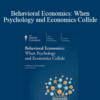
5 reviews for Professor Scott Huettel – Behavioral Economics: When Psychology and Economics Collide
There are no reviews yet.